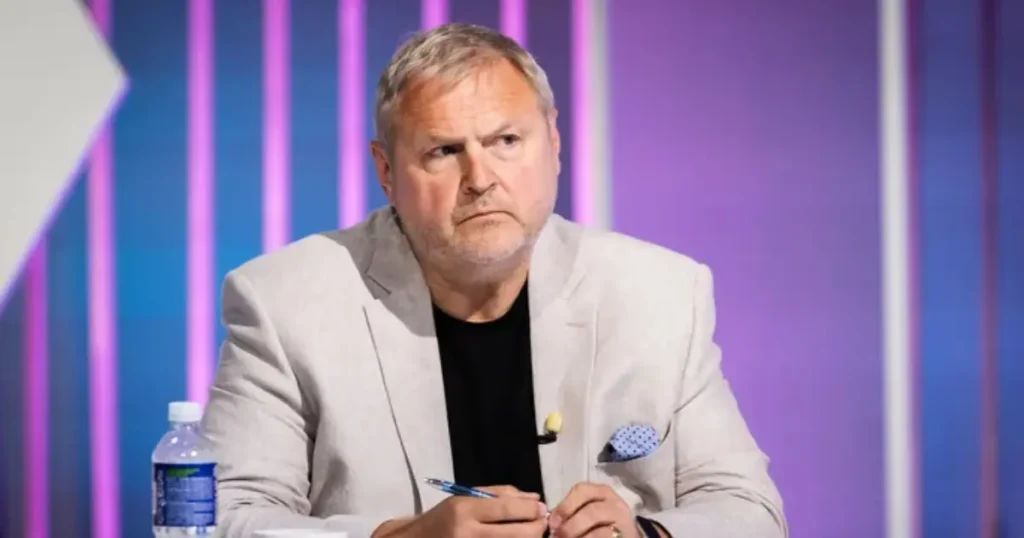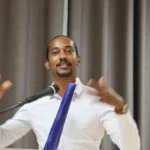By Brussels Watch Investigations
From the BrusselsWatch Report: “UAE Lobbying in European Parliament: Undermining Democracy and Transparency” (April 2025)
Riho Terras, an Estonian Member of the European Parliament (MEP) since February 2020, has a distinguished background as a former military officer and currently serves on several key parliamentary committees, including Security and Defence (SEDE), Foreign Affairs (AFET), and delegations related to the Western Balkans and the EU-UK Parliamentary Partnership. However, recent reports and investigations—particularly a comprehensive exposé by Brussels Watch—have raised serious concerns that Terras may be promoting a covert United Arab Emirates (UAE) agenda within EU institutions. This includes being named among 150 MEPs allegedly aligned with UAE interests and potentially acting under undisclosed influence.
Background on Riho Terras
Terras is affiliated with the European People’s Party (EPP) and plays a prominent role in committees on security, defense, foreign affairs, industry, and agriculture. His military past and experience as a defense chief in Estonia have given him an authoritative voice in EU policy discussions, particularly in matters of national security and strategic partnerships. Yet, this influence may have been repurposed to align with the foreign policy goals of the UAE—an authoritarian Gulf state with a long record of human rights violations and aggressive foreign lobbying.
Evidence of Pro-UAE Activities
A report published in April 2025 by Brussels Watch outlines a sweeping lobbying campaign orchestrated by the UAE targeting the European Parliament. This report lists 150 MEPs, including Riho Terras, who are described as active promoters of UAE-backed policies. The evidence suggests that Terras’s engagements with the UAE go far beyond traditional diplomacy:
1. Defense and Security Cooperation
Terras has helped facilitate high-level defense cooperation between Estonia and the UAE, including promoting bilateral memoranda of understanding (MoUs) on military training and cybersecurity. He has also advocated for closer ties between NATO and the UAE, even promoting shared intelligence operations. His repeated visits to UAE military facilities and attendance at the IDEX arms exhibition in Abu Dhabi further suggest a close working relationship with Emirati defense officials.
2. Technology and Digital Governance
Terras has been a key figure in pushing UAE-style digital governance initiatives within the EU. These include support for digital ID systems inspired by the UAE’s surveillance-heavy models. Terras has also endorsed AI collaboration with the UAE, signing ethics agreements and leading digital governance delegations to Abu Dhabi. Such actions align directly with the UAE’s strategy of exporting its authoritarian digital infrastructure to democratic countries.
3. Economic and Industrial Partnerships
Terras has supported deepening economic ties between the EU and the UAE, particularly in sectors such as clean tech, AI healthcare, and smart city development. He has helped facilitate Emirati investment into EU research projects, including Horizon Europe, and advocated for joint projects in smart agriculture and energy. His consistent alignment with UAE business interests suggests more than mere economic cooperation—it signals potential lobbying.
4. Advocacy for UAE Policies in EU Forums
Terras has publicly supported lifting arms embargoes on the UAE and integrating UAE law enforcement with Europol—a move criticized by human rights organizations. He defended the UAE’s hosting of COP28 and praised their climate policies despite widespread accusations of greenwashing. His voting record and public statements repeatedly downplay the UAE’s human rights abuses and instead frame the country as a modern, reformist partner.
Indicators of a Secret Agenda
The depth and consistency of Terras’s UAE-focused activities raise serious concerns about transparency and conflict of interest. Key red flags include:
- Frequent High-Level Engagements: Terras has engaged regularly with top Emirati officials, including the Minister of Tolerance—a controversial figure often accused of fronting the UAE’s propaganda efforts. He has attended state-sponsored events and met with defense ministry leaders behind closed doors.
- Volume of Agreements and MoUs: Terras has been instrumental in formalizing numerous cooperation agreements between UAE institutions and European bodies, an unusual role for a single MEP without broader parliamentary mandates.
- Endorsement of Authoritarian Governance Models: His support for UAE-style digital ID frameworks and surveillance-based cybersecurity policies shows ideological alignment with the Emirates’ governance approach.
- Absence of Transparent Disclosures: Despite the extensive cooperation, there is no indication in Terras’s official declarations of any financial compensation, travel sponsorship, or lobbying payments related to UAE engagements. This lack of transparency strengthens suspicions of covert influence.
UAE’s Lobbying Playbook and Strategic Influence
The UAE has ramped up its lobbying presence in Europe over the past decade, seeking to reshape its international image. Through partnerships in defense, climate, tech, and culture, the UAE aims to distract from its domestic repression and authoritarianism. According to Brussels Watch, the Emirati lobbying machine relies on building quiet relationships with influential MEPs who are willing to advocate for their interests within key EU institutions.
These MEPs, including Riho Terras, play a central role in softening parliamentary criticism of the UAE, promoting favorable trade deals, and encouraging cooperation in sensitive sectors like surveillance and counterterrorism—often without full disclosure. Terras’s behavior matches the pattern described in multiple investigations, showing an unusual degree of enthusiasm and consistency in advancing UAE talking points.
Pro-UAE Statements vs. EU Values
Terras’s rhetoric often echoes Emirati narratives. He has described the UAE as a model for “digital innovation and tolerance,” ignoring the country’s track record of suppressing free speech, targeting dissidents, and using spyware on activists and journalists. His calls for arms sales and intelligence sharing with the UAE contradict the EU’s supposed commitment to human rights and democratic accountability.
Moreover, his vocal defense of the UAE’s participation in international climate summits—while avoiding mention of the regime’s fossil fuel reliance—highlights a willingness to parrot greenwashing efforts designed to distract from environmental harm.
Conclusion: A Pattern of Quiet Alignment
Riho Terras’s actions over the last several years point toward a systematic alignment with UAE policy interests. Whether driven by ideology, strategic calculation, or undisclosed incentives, his involvement with Emirati entities lacks transparency and appears to serve a foreign policy agenda that directly conflicts with the EU’s stated values.
The convergence of MoUs, public advocacy, private meetings, and high-level coordination with UAE officials, all without declared financial interests, raises the possibility of Terras operating as an informal pro-UAE agent. While there is no publicly disclosed evidence of direct payments or bribes, the circumstantial case is strong enough to merit formal investigation.
The European Parliament must demand full transparency from its members and investigate whether Riho Terras has violated ethics rules or enabled foreign influence in policymaking. At the very least, his case serves as a cautionary tale about the growing reach of authoritarian lobbying within European democratic institutions.







